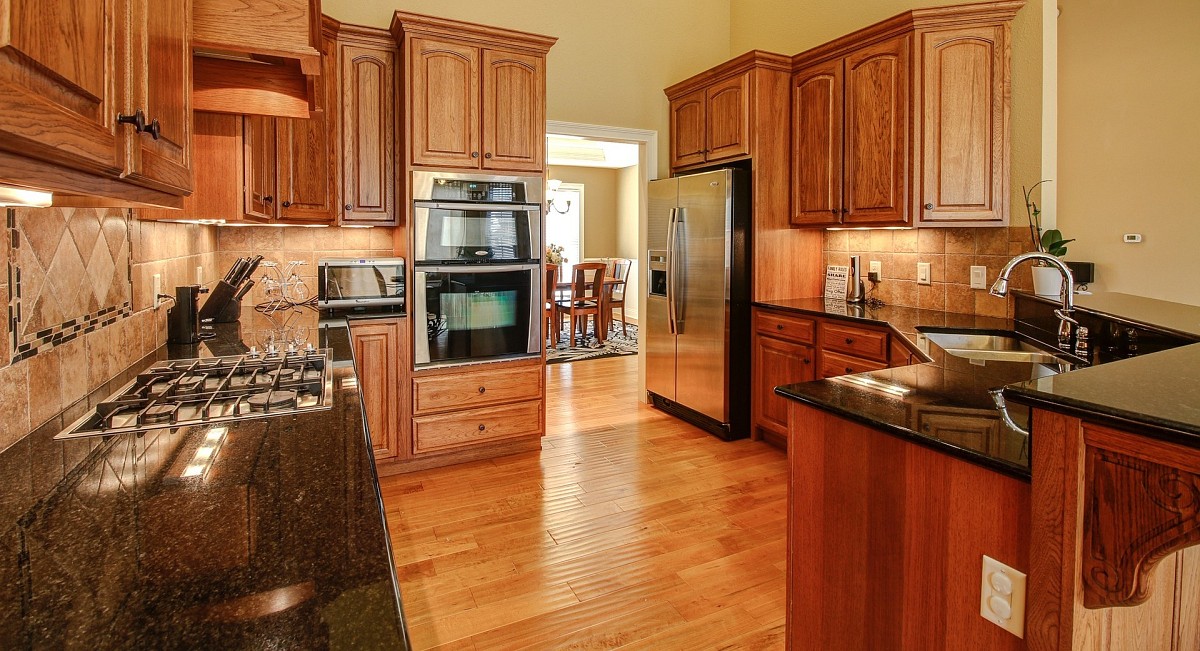The Health Risks of Granite Countertops

Granite is one of the most popular countertop materials today. Available in a wide variety of colors and designs, this natural stone offers many advantages when you feature it in your bathroom or kitchen remodel, and most realtors agree that granite countertops add appeal and value to your home. Except for one problem … granite can release radon, a potential carcinogenic gas, into your home. What’s this all about and what does it mean for the granite countertops of your dreams? Find out more.
Advantages of Granite Countertops
First the good news.
The surface of a polished granite countertop is bacteria-resistant. Because it is non-porous, there’s no way for bacteria to hide on it.
What’s more, durable granite countertops gracefully withstand abuse. They are nearly impossible to scratch. Hot pots, pans, and cookie sheets cannot hurt them, either. In fact, granite is one of the hardest and strongest stones.
Although the polished surface of most granite must be properly sealed (and resealed every few years) to protect against stains, some varieties are so dense that sealing is unnecessary. Absolute black and galaxy black are not only nearly indestructible; they are among the most expensive kinds of granite.
Is Granite Radioactive?
Now, the news about granite and radon.
As with most natural stones, granite may contain trace amounts of radioactive elements, such as uranium. These elements emit radon gas as they decay. Depending on the slab, granite may also emit minute quantities of beta and gamma radiation. Several years ago, The Early Show aired an episode called “Granite Countertops: A Health Threat?” They suggested that homeowners have their countertops tested for radon emissions.
Which granite has the most radon? Granites in red shades seem to emit the highest radiation, though it’s recommended that each piece, no matter what color, be tested.
Learn More about Radon
Radon is a known cancer-causing radioactive gas that is commonly found in homes in some areas of the US, generally in low-lying parts of the house such as basements. Not only is radon invisible, it has no taste or smell, according to the Environmental Protection Agency.
The EPA recommends testing all homes for radon, regardless of whether granite countertops are installed, and mitigating overly high levels of the gas. In the words of the EPA, "Learn how you can protect your family. Test your home for radon -- it's easy and inexpensive. Fix your home if you have a radon level of 4 pCi/L or more."
For homeowners interested in learning more about radon, the World Health Organization offers the downloadable WHO Handbook on Indoor Radon, A Public Health Perspective.
Granite And Radon
Even if radon is found in the home and a granite countertop or floor is a contributing factor, there are easy and inexpensive mitigation solutions available.
The Marble Institute of America refutes the evidence that granite can be harmful, pointing to its own research on the topic.
For any homeowner considering granite countertops, the best advice is to do your research. Hire a reliable remodeling contractor to install your counters and have your slab tested before it is installed. Consider the beauty and durability of the countertop and the fact that it will add value to your home. If a time comes when you want to sell your home, provide potential buyers with test results to allay any concerns.
This article was updated November 6, 2017.
Looking for a Pro? Call us (866) 441-6648

Related Experiences

Outstanding Tile Installation Based On My Own Design

A Tile Contractor Ready To Tackle The Whole Job – And Do It Right



